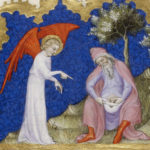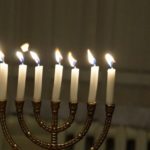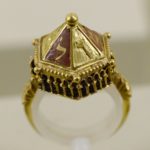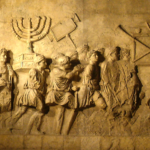The United States is predominantly Christian. 95% of Americans celebrate Christmas, and half of those Americans identify Christmas as a strongly religious holiday. Nearly all Americans who celebrate Christmas engage in some public Christmas-themed displays, ranging from traditional nativity scenes to oversized rooftop Santas. However, Americans also include people of other faiths, including between 5 and 8 million Jews. American Jews are divided in how they feel about the overwhelming annual public display of a fundamentally Christian holiday.
Jews do not worship Jesus
Many Jews feel that taking Judaism seriously also means taking the religious meaning of Christmas seriously. According to this view, because a Jew does not believe in Jesus Christ, the Son of God, a Jew also can’t celebrate the holiday commemorating Jesus’ birth.
This does not mean that the trappings of Christmas should be rejected. For these Jews, there is absolutely nothing wrong with Christians celebrating Christmas in their own way. There is nothing whatsoever threatening about a Christmas tree being called a Christmas tree.
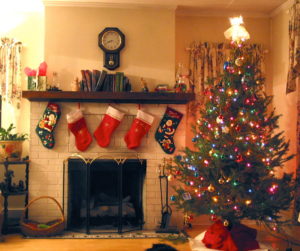 Christmas displays and music can even be enjoyed, but they must not be participated in by the Jewish family.
Christmas displays and music can even be enjoyed, but they must not be participated in by the Jewish family.
Thus, these Jews often feel alienated at Christmas time. The Jewish children of a family which holds these views often don’t understand why they can’t celebrate Christmas along with everyone else. Christmas television programming and storytelling teaches that anyone who doesn’t celebrate Christmas is either a Scrooge or a Grinch. In the dominant Christmas stories, there isn’t room for any other viewpoint.
Hanukkah
To make things easier for the children, many Jews who hold this view have compensated by raising the popular profile of Hanukkah. Originally, Hanukkah was a minor Jewish holiday of candles, daily blessings, special foods, and charity. In some Jewish traditions, the children were given small gifts, although much greater importance was placed on charity. It was not even treated as a Sabbath, apart from the day which naturally fell on the Sabbath day.
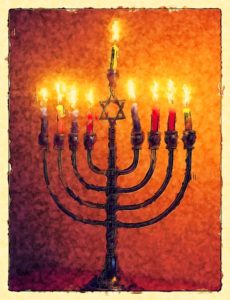
In the U.S. and to a lesser extent big-city Israel, the spectacle and gift-giving aspects of Hanukkah have been greatly expanded over their equivalents in Hanukkah celebrations elsewhere in the world. These gifts may be toys and other things, or they may take the form of money (Hanukkah gelt). In this way, American Jewish children are not left out of the general gift-giving.
Many American Jewish families put up a Hanukkah bush for the duration of the festival. The green bush is decorated in the same way as a Christmas tree but without any Christian religious ornaments.
Secular Judaism
Many American Jews identify themselves more as a culture than as a religious group. This group of American Jews may participate in the Christmas festivities which are not overtly religious.
In 2013, roughly 1/3 of American Jews had a Christmas tree in their homes. This corresponds closely to the percentage of Jewish parents who identified themselves as Jewish but of no religion. While 71% of Jews who married non-Jews put up a Christmas tree, just 1% of Ultra-Orthodox Jews did so. The practice was also more common among younger American Jews than older American Jews.
A secular American Christmas
Ironically, American Jews played a major role in defining the modern American Christmas. Many of the most famous Christmas songwriters of Tin Pan Alley were Jewish.
 “White Christmas” was written by Irving Berlin, a Jew. Johnny Marks had 3 Christmas hits: “Rockin’ Around the Christmas Tree,” “A Holly Jolly Christmas,” and the beloved “Rudolph the Red-Nosed Reindeer.”
“White Christmas” was written by Irving Berlin, a Jew. Johnny Marks had 3 Christmas hits: “Rockin’ Around the Christmas Tree,” “A Holly Jolly Christmas,” and the beloved “Rudolph the Red-Nosed Reindeer.”
“Winter Wonderland” (by Felix Bernard), “Chestnuts Roasting on an Open Fire” (by Mel Torme and Bob Wells), “Silver Bells” (by Jay Livingston and Ray Evans), “I’ll Be Home for Christmas” (by Walter Kent and Buck Ram), and “Let It Snow!” (by Sammy Cahn and Jule Styne), were all written or co-written by Jews.
Although half of all Americans see Christmas as a predominantly religious holiday, the other half still see Christmas through the lens of family and fellowship. Maybe the highest number of Americans, Christian and Jew alike, choose to celebrate the season through family shopping.


